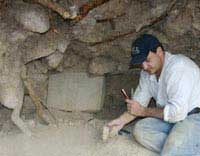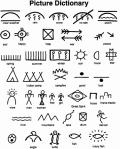Hundreds of Ancient Roman and Iron Age Coins have been discovered by George Ridgway in a field near the town of Ipswich, Suffolk, and are currently being appraised by the British Museum.
This information was reported by BBC on May 22. The proceeds from the find will be shared between Ridgway and the landowner.

Hundreds of gold and silver coins found in a field in Suffolk. (Photo: George Ridgway)
In September 2019, while tracing Roman roads, Ridgway encountered an unusual mark in the field and began excavating. “I discovered two Roman brooches, followed by a silver denarius featuring Julius Caesar, dating back to 46 – 47 BC. After about two hours, I found 180 coins. I was truly astonished,” he shared.
Ridgway continued to uncover fragments of a pot and more coins. He believes they were buried together. He worked with archaeologists for three months to excavate the remaining items, totaling 748 coins.
Ridgway believes that this site may contain an undiscovered Roman settlement. He hopes to explore further with archaeologists in the future.
“In my opinion, this is now the largest hoard of precious metals from the reign of Roman Emperor Claudius I (41 – 54 AD) ever found in Britain. What is unusual is that it contains both Roman coins and coins from the Iron Age, specifically from the reign of King Cunobelin,” said Dr. Eleanor Ghey, an expert at the British Museum.
Notably, the Ipswich hoard includes a gold coin of Claudius that dates back to just before the Roman conquest of Britain in 43 AD. “Gold Roman coins from this period are rarely found,” Ghey remarked.
“In terms of ancient value, this hoard is equivalent to over two years’ salary of a Roman auxiliary soldier,” Ghey stated. Experts hope that the hoard will be displayed long-term at the Ipswich Museum in the future.





















































